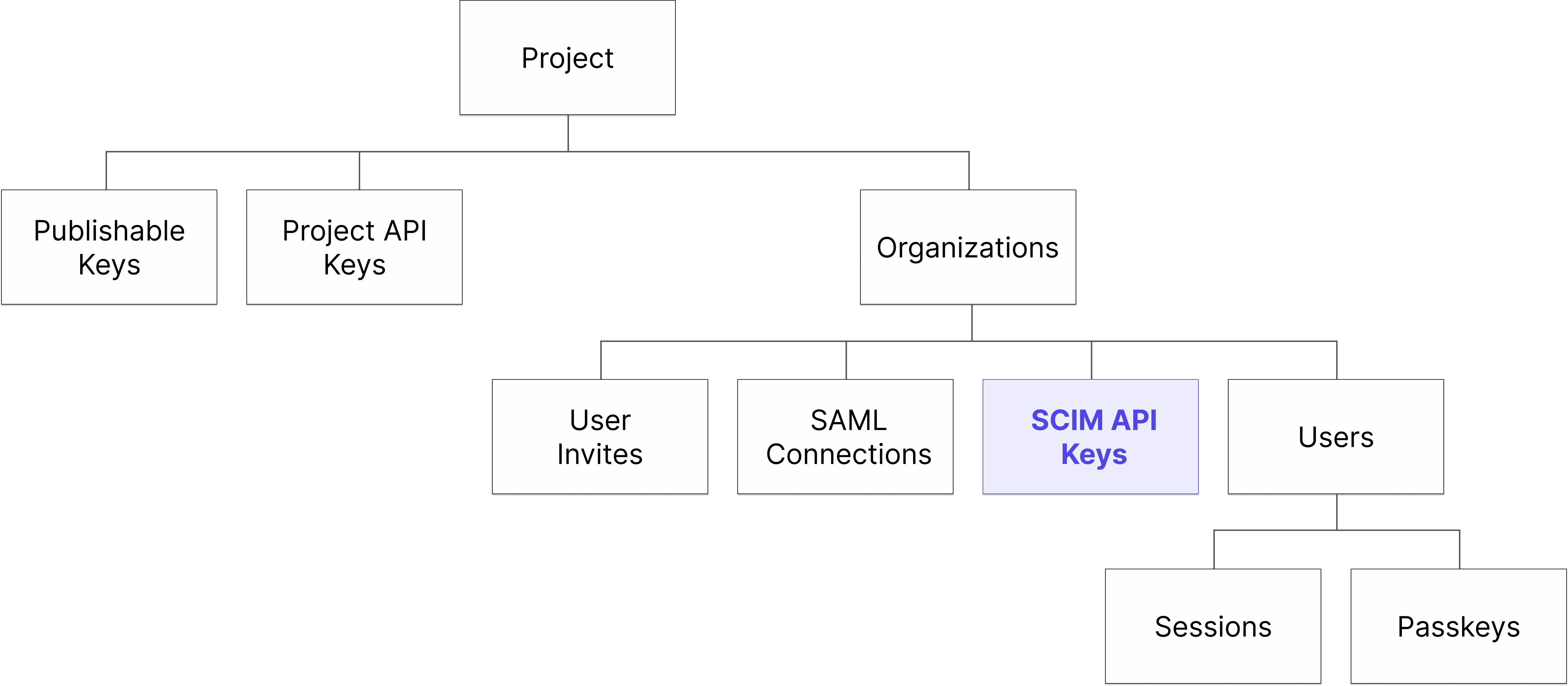SCIM API Keys in Tesseral
What is a SCIM API Key?
Large or security-conscious customers will often request that their software vendors support SCIM provisioning, which allows them to automatically manage Users in your software. For example, your customer can create a new User whenever they hire someone new.
SCIM provisioning requires a pre-configured trust relationship with a given Organization’s identity provider (IDP), a software application like Okta or Microsoft Entra.
To establish such a trust relationship with your customer’s IDP, you must share a secret with your customer. In Tesseral, this secret is called a SCIM API Key. Your customer’s IDP will include the SCIM API Key any time it makes a request to Tesseral. A valid SCIM API Key proves that such a request is legimate.
SCIM API Keys always belong to exactly one Organization. They therefore indirectly belong to exactly one Project.

Properties of SCIM API Keys
SCIM API Keys have the following top-level properties:
- ID
- Organization ID
- Create time
- Update time
- Display name
- Secret token
- Revoked
ID
Each SCIM API Key has an id property that begins with scim_api_key_. This value is not a secret. It merely identifies the API key; for example, you can find a given SCIM API Key in the Tesseral console at the route https://console.tesseral.com/organizations/org_.../scim-api-keys/scim_api_key_....
tesseral_secret_scim_api_key_. This is distinct from the id.Organization ID
Each SCIM API Key belongs to exactly one Organization. The organization_id for a given SCIM API Key uniquely identifies the Organization that the SCIM API Key belongs to.
Create time
Identified in the Backend API as createTime, this field simply represents the timestamp from when the SCIM API Key record was created.
Update time
Identified in the Backend API as updateTime, this field represents the timestamp from the last change to the SCIM API Key record’s properties.
Secret token
Identified in the Backend API as secretToken, this is a string that begins tesseral_secret_scim_api_key....
This value must remain a secret between you and your customer. While you will have to share this string with your customer’s IT administrator (for use in your customer’s identity provider), avoid sharing the secret token broadly.
Revoked
Revoked is a boolean value. Tesseral’s API will reject any SCIM requests that use SCIM API Keys for which this value is True (displayed as yes in the console).
You cannot restore a revoked SCIM API Key — that is, you cannot change this value from True to False. Instead, you can simply create a new SCIM API Key.